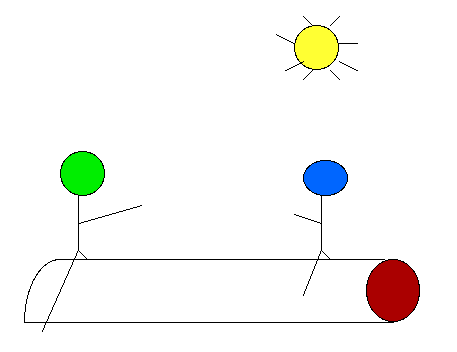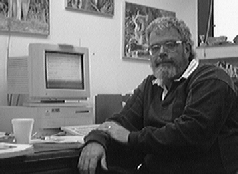I have been developing Internet-based course resources for the past 5 years. A mixture of peer pressure and curiousity encouraged me to offer an online section in spring, 2000. I had never offered an online section nor had I ever taken a course in a setting other than the good old face-to-face mode of presentation.
Most of you probably already are users of the Internet. If you have no prior experience then you should immediately go to the UH Library and find out about their introductory courses. It will not take long to become and effective "user".
This semester I am offering both OnLine and a Face-2-Face sections. When you connect with the home page for the course you will select between the two sections. You are welcome to look at both BUT there are differences in things like when material must be submitted so make sure that you use the appropriate set of resources.
A question that will come up real quick is "do you really expect me to use all of this material .... the text, the CD, the web page, the course home page, the Internet ..... . Of course, I could answer --- Of Course.
Realistically, however, you do have an abundance of material. The critical issue is what works well for you and how effectively you use what is available.
I would begin by at the Internet pages for the chapter. Look at the chapter objectives. In preparing for an examination, return to the chapter objectives.
Each chapter begins with a link to a resource that I feel is pertinent for the content that will be covered. I would probably begin with the power point presentation with some streaming audio. If you missed class this will let you see the same slides as those who attended. Look at the chapter Notes. Most contain self quizzes as part of the notes. It is easy to skip over them but use them if you want to see if you understand the concepts.
Use the text to obtain a more complete explanation. There is a CD that accompanied the text. Try it out. Try the quizes at the end of the Internet pages or at the publishers web site. Part of learning is learning how to learn. Each of you will probably have differences in the environment that you need for real learning to occur.
If you have questons during the course you can contact me at: jbutler@uh.edu


